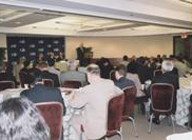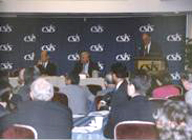| Date |
Thursday, July 6 - Monday, July 10, 2006
.jpg) .jpg) |
| Venue |
ANA Hotel Tokyo, Japan:
12-33 Akasaka 1-chome Minato-ku Tokyo 107-0052
Tel: +81-3-3505-1111 |
| Co-hosted |
Japan Economic Foundation
Chicago Council on Foreign Relations (CCFR)
Pacific Council on International Policy (PCIP) |
ProgramA BINATIONAL STUDY (The Second Study Group Meetings in July 2006)
Binational Study on the Impact of the Rise of China and India, and the U.S.-Japan Economic Relationship
Agenda for the Second Study Group Meetings in Tokyo
Thursday, July 6, 200618:30-20:30 Welcoming Dinner hosted by JEFGuest Speaker:
Kazumasa Iwata, Deputy Governor, Bank of Japan
Guests:
Kunihiko Matsuo, Chairman, INPEX CORPORATION
Zembei Mizoguchi, President, Japan Center for International Finance
Participants:
Japanese study group members
US study group members
Friday, July 7, 200608:00-08:50 Breakfast SessionCo-Chairs:
Noboru Hatakeyama, Chairman and CEO, Japan Economic Foundation
Kenneth Dam, Max Pam Professor Emeritus of American and Foreign Law, University of Chicago Law School
Participants:
Japanese study group members
US study group members
-To discuss the overall report structure, findings and recommendations.
09:00-12:30 Morning Session - Session 1Key topic 1:
Policies designed to facilitate sustained growth and development in India and China (including structural/market reforms, investments, infrastructure development, stable property rights, etc.)
Co-Chairs:
Noboru Hatakeyama, Chairman and CEO, Japan Economic Foundation
Kenneth Dam, Max Pam Professor Emeritus of American and Foreign Law, University of Chicago Law School
Speaker:
Taizo Nishimuro, President and CEO, Tokyo Stock Exchange, Inc, Adviser to the Board, Toshiba Corporation
Participants:
Japanese study group members
US study group members
Discussants:
James Jin Du, Professor of economics, Faculty of Asian-Pacific Studies, Department of International Development, Takushoku University
Hideki Esho, Dean and Professor, Faculty of Economics, Hosei University
-To discuss the key topic on the final report
-To agree on the key topic including policy implications and recommendations
12:30-14:00 Luncheon and discussionParticipants:
Japanese study group team members
US study group team members
14:00-17:00 Afternoon Session - Session 2Key topic 2:
Technology sharing and its relationship to innovation
Co-Chairs:
Noboru Hatakeyama, Chairman and CEO, Japan Economic Foundation
Kenneth Dam, Max Pam Professor Emeritus of American and Foreign Law, University of Chicago Law School
Speaker:
Fujio Cho, Chairman, Toyota Motor Corporation
Participants:
Japanese study group members
US study group members
Discussants:
Tomoo Marukawa, Associate Professor, Institute of Social Science, University of Tokyo
Hiroyuki Oba, Professor, International Economics Department, Reitaku University
-To discuss the key topic on the final report
-To agree on the key topic including policy implications and recommendations
18:30-20:30 Dinner hosted by JEFParticipants:
Japanese study group members
US study group members
Saturday, July 8, 200609:00-12:30 Morning Session - Session 3Key topic 3:
Meeting the energy challenges faced by the four countries
Co-Chairs:
Noboru Hatakeyama, Chairman and CEO, Japan Economic Foundation
Kenneth Dam, Max Pam Professor Emeritus of American and Foreign Law, University of Chicago Law School
Speaker:
Kunihiko Matsuo, Chairman, INPEX CORPORATION
Participants:
Japanese study group members
US study group members
Discussants:
Tsutomu Toichi, Senior Managing Director & COO, The Institute of Energy Economics, Japan
Shigeru Sudo, Director, Energy and Environment Program, International Development Center of Japan
-To discuss the key topic on the final report
-To agree on the key topic including policy implications and recommendations
12:30-14:00 Luncheon and discussionParticipants:
Japanese study group members
US study group members
14:00-17:00 Afternoon Session - Session 4Key topic 4:
Trade relationship issues, including the WTO, protectionism, and examining ways to avoid politicization of trade and exchange rate disputes, and Evolution of East Asia as an economic region and how it relates to the United States and Japan
Co-Chairs:
Noboru Hatakeyama, Chairman and CEO, Japan Economic Foundation
Kenneth Dam, Max Pam Professor Emeritus of American and Foreign Law, University of Chicago Law School
Speakers:
Noboru Hatakeyama, Chairman and CEO, Japan Economic Foundation
Zembei Mizoguchi, President, Japan Center for International Finance
Participants:
Japanese study group members
US study group members
Discussants:
Sayuri Shirai, Professor of Economics, Keio University
Shujiro Urata, Professor of Economics at Graduate School of Asia-Pacific Studies, Waseda University
-To discuss the key topic on the final report
-To agree on the key topic including policy implications and recommendations
18:30-20:30 Dinner hosted by JEFGuest Speaker:
Masakazu Toyoda, Director-General, Commerce and Information Policy Bureau, Ministry of Economy, Trade and Industry
Participants:
Japanese study group members
US study group members
Sunday, July 9, 2006 - free day
Monday, July 10, 200609:00-12:00 Concluding Session - A closed session of study group members
09:00-09:10 Guest Speaker:Yasuhisa Shiozaki, Senior Vice-Minister for Foreign Affairs
09:10-12:00 Concluding SessionCo-Chairs:
Noboru Hatakeyama, Chairman and CEO, Japan Economic Foundation
Kenneth Dam, Max Pam Professor Emeritus of American and Foreign Law, University of Chicago Law School
Participants:
Japanese study group members
US study group members
-To confirm the final report based on each discussion on the respective key topics.
-To discuss the dissemination seminars in both the US (in the first week of October 2006) and Japan (in late January 2007)
12:00-13:30 Luncheon and discussion hosted by JEFParticipants:
Japanese study group members
US study group members
Participants
SummaryMinutes of July 7Minutes of July 8
2017. JULY
2016. JUNE
2015. SEPTEMBER
2014. DECEMBER
2013. OCTOBER
2013. FEBRUARY
2011. NOVEMBER
2010. OCTOBER
2010. JANUARY
2008. DECEMBER
2007. NOVEMBER
2006. OCTOBER
2006. JULY
2005. SEPTEMBER
2004. MAY
2003. OCTOBER
DateNovember 13, 2023
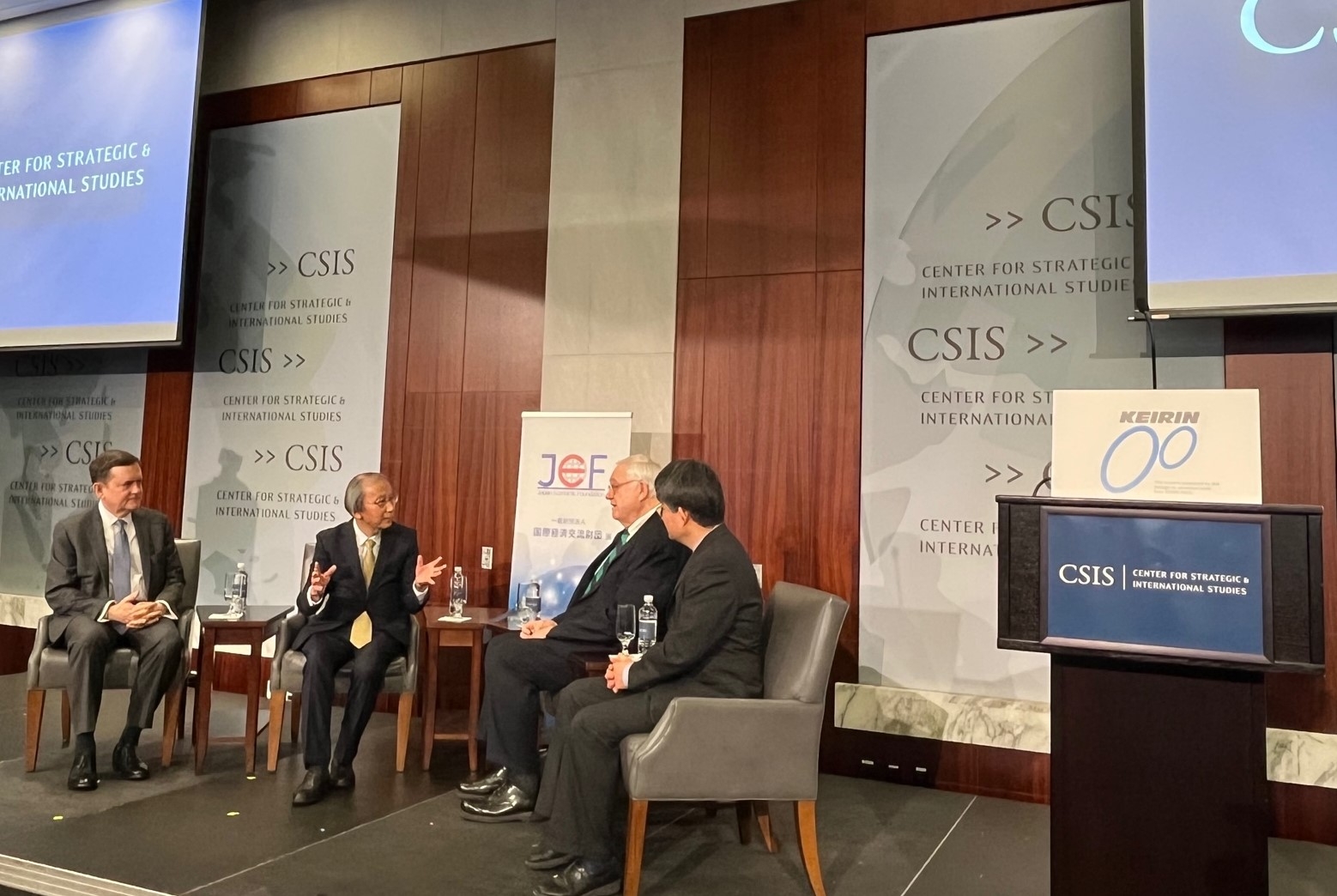 DateJanyary 11, 2023
DateJanyary 11, 2023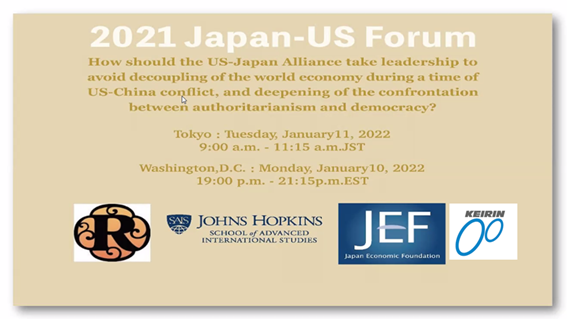 DateJanuary 11, 2022
DateJanuary 11, 2022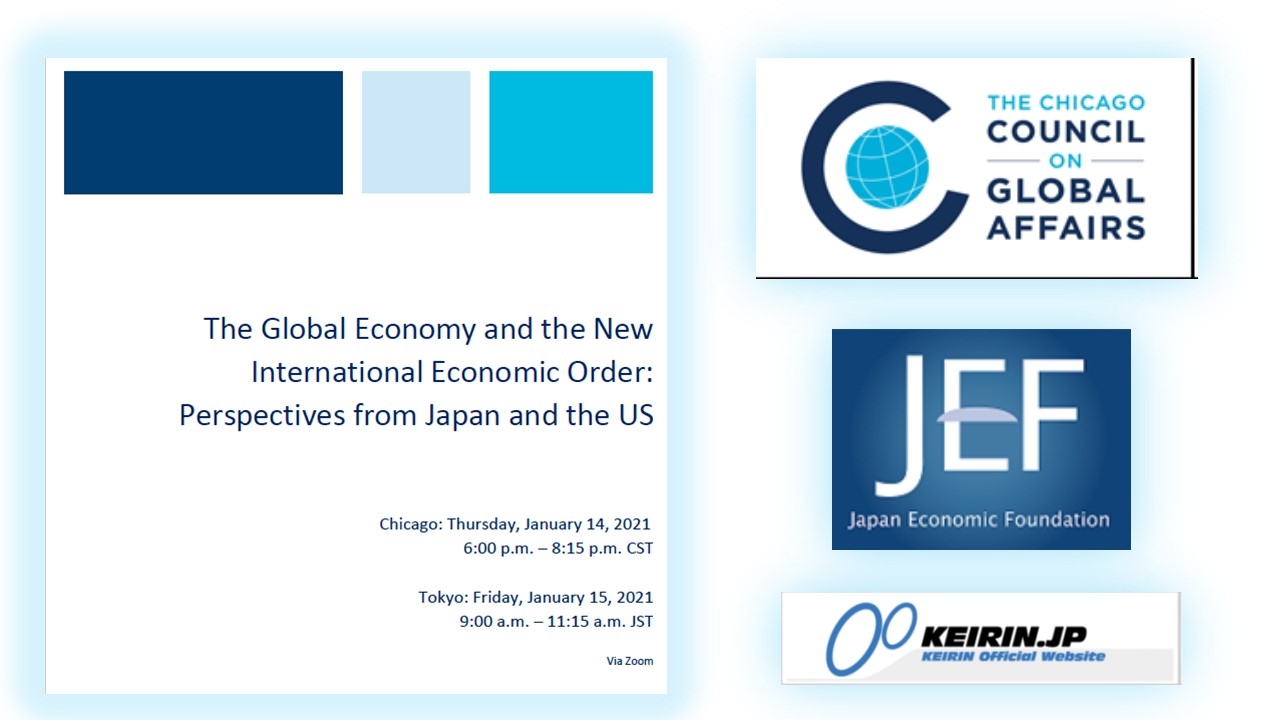 DateJanuary 15, 2021
DateJanuary 15, 2021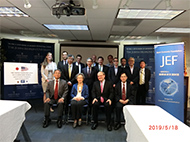 DateMay 17, 2019
DateMay 17, 2019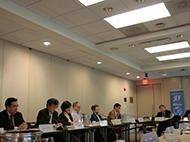 DateFriday, 25 May 2018
DateFriday, 25 May 2018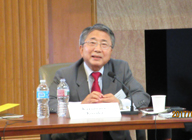 DateFriday, June 2, 2017
DateFriday, June 2, 2017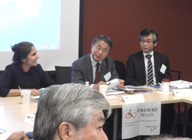 DateFriday, June 3, 2016
DateFriday, June 3, 2016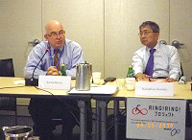 DateFriday, September 25, 2015
DateFriday, September 25, 2015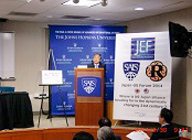 DateTuesday, September 30, 2014
DateTuesday, September 30, 2014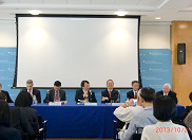 DateWednesday, October 2, 2013
DateWednesday, October 2, 2013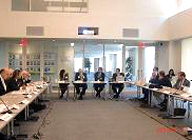 DateThursday, February 14, 2013
DateThursday, February 14, 2013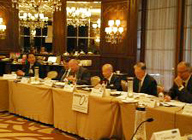 DateWednesday, November 16, 2011
DateWednesday, November 16, 2011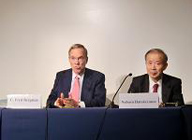 DateMonday, October 25, 2010
DateMonday, October 25, 2010.jpg) DateThursday, July 6 - Monday, July 10, 2006
DateThursday, July 6 - Monday, July 10, 2006.jpg) DateMonday, September 19 - Wednesday, September 21, 2005
DateMonday, September 19 - Wednesday, September 21, 2005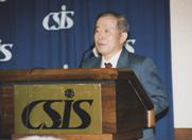 DateMay 26, 2004
DateMay 26, 2004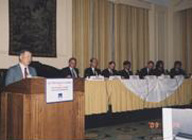 DateOctober 15, 2003
DateOctober 15, 2003
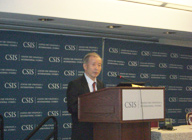
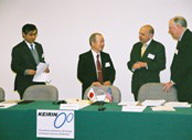
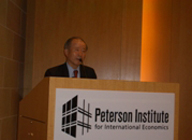
.jpg)
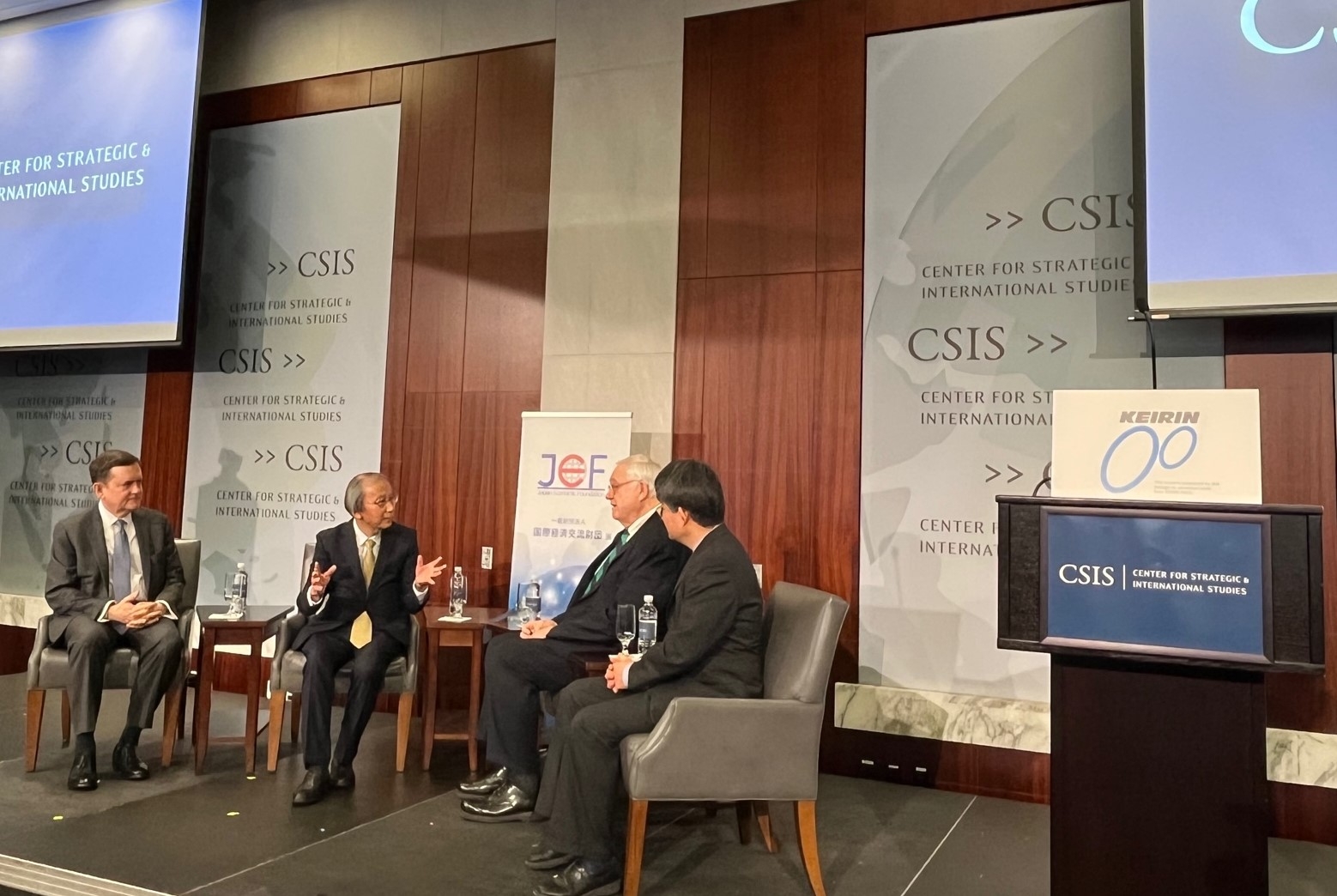
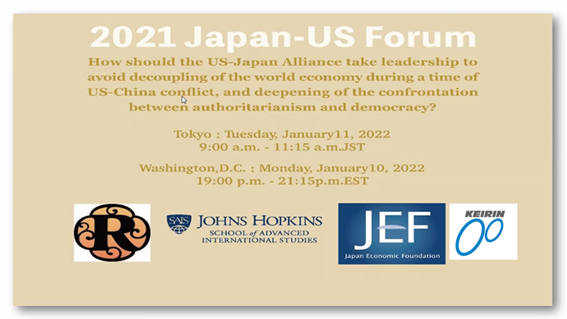
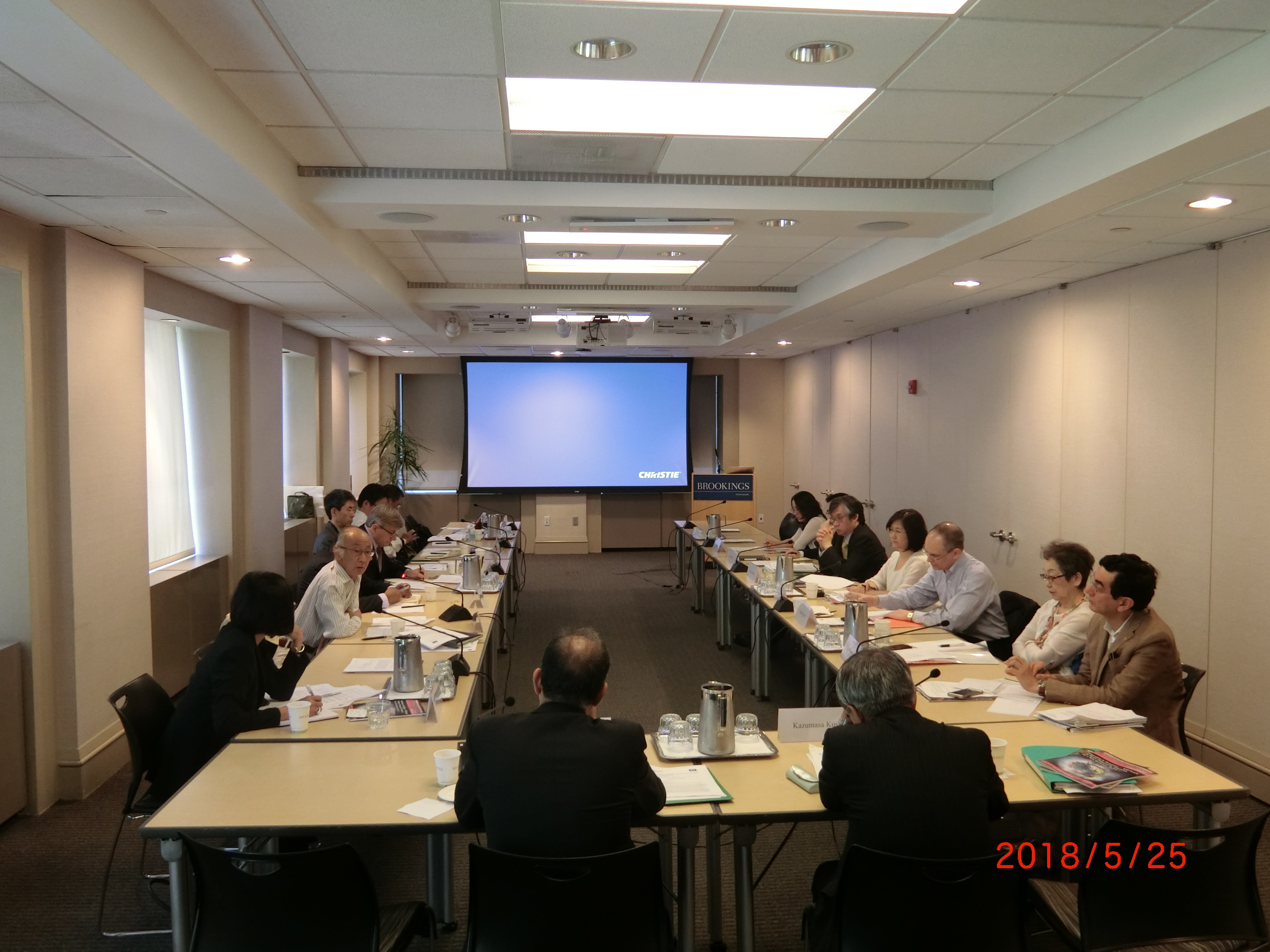
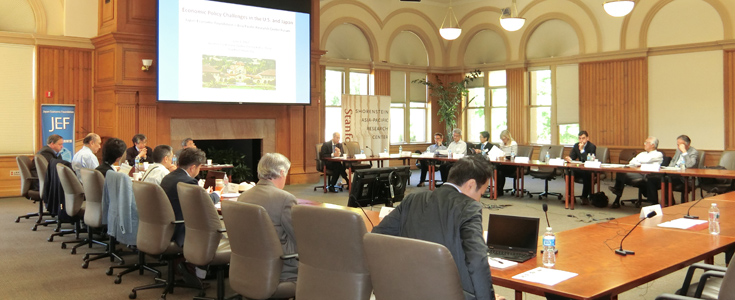
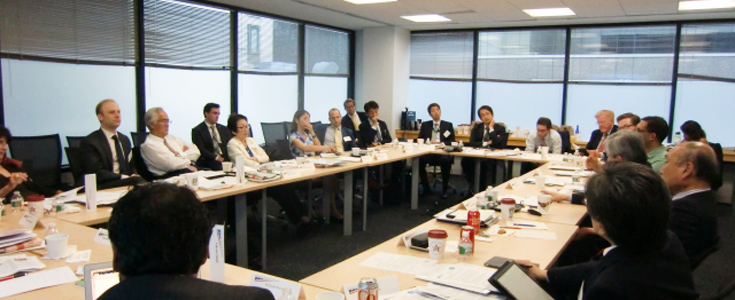


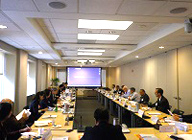
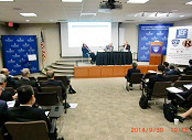
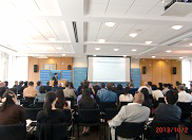
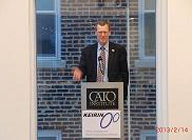
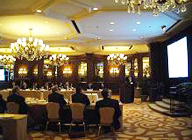
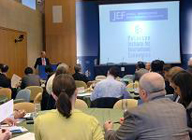
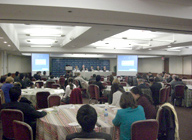
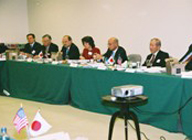
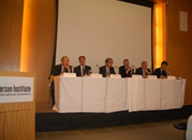
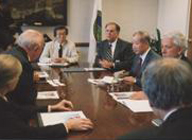
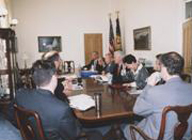
.jpg)
.jpg)
